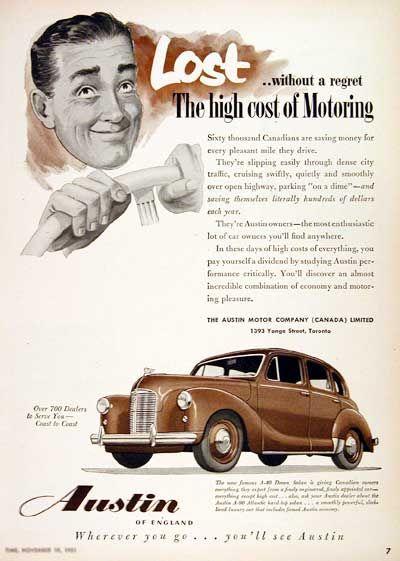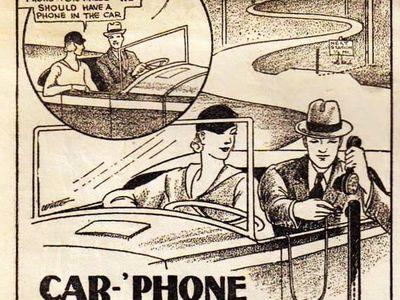















Thanks to Dave for some of the photos…
















Thanks to Dave for some of the photos…
I cost nothing to run so donate to https://www.broadcastingscotland.scot/donate/
The bilingual blog about all things British
Love, theatre and ideas
British Wildlife & Photography
Why Scotland should be an independent country
Thoughts about Scotland & the world, from a new Scot
Bipartisan dialogue for the politically engaged
Impartial Everytime Always
We Provide The Facts, You Make The Decisions
Exploring Rhymes, Reasons, and Nuances of Our World
Mark Doran's Music Blog
Songwriter / Guitarist
This site supports Scottish Independence
A comic about history and stuff by FT
The embittered mumblings of a serial malcontent.
an irreverent look at UK politics
Exploring the Depths of Curiosity
Nature + Health
http://netbij.com
Movies, politics, comedy and more...
The Eat Lard poster reminded me of the Viz comic and the great many bogus ads and posters featured in it. Here’s another couple.
You’ll find more here if your interested.
https://www.google.co.uk/search?q=viz+comic+posters&safe=active&client=safari&hl=en-gb&prmd=sinv&source=lnms&tbm=isch&sa=X&ved=2ahUKEwjVg9H3zPPgAhWqQhUIHeliCv0Q_AUoAnoECAwQAg&biw=1024&bih=727
LikeLiked by 2 people
LOL LOL.
I love the Inconticart one!
LikeLiked by 1 person
Wonderful collection of images. Great start to the day. Thanks.
LikeLiked by 1 person
🙂
LikeLike
https://www.washingtonpost.com/opinions/global-opinions/the-more-we-learn-about-brexit-the-more-crooked-it-looks/2019/03/08/b011517c-411c-11e9-922c-64d6b7840b82_story.html?utm_term=.bd988f521158
The more we learn about Brexit, the more crooked it looks
By Anne Applebaum
Columnist
March 8 at 6:23 PM
LikeLiked by 2 people
“Perhaps that was the point all along.”
I don’t think there’s much “perhaps” about it, Niko.
These people had to get us out of the EU before the restrictions on off-shoring became law.
The attendant misery won’t affect them, but the regulations would have.
Take back control of decent British billionaires.
How sad.
LikeLiked by 2 people
https://www.thetimes.co.uk/article/tax-haven-rich-list-elite-swap-britain-for-sunshine-and-superyachts-sw2xkqg23
LikeLiked by 2 people
From when everyone smoked:
LikeLiked by 2 people
LOL…
Nowadays they would have to add that after you’d been off work for more than a few days Amber Rudd would be on your back demanding you get checked out by Atos and automatically sanctioned.
LikeLike
Jimmy Logan was a great stage actor. I saw him in a few things over the years, but I recall him in All My Sons at Pitlochry shortly before he died ( 2001 it says in Wiki – god how old I’m getting ).
Lard? I bought some last year to feed the birds. They completely ignored it. Even starving birds wont eat that now.
Penguin biscuits. United Bakeries was a conglomerate formed from a couple of Scottish biscuit makers and their acquisitions. I used to hold some shares in the company. Then they bought Nabisco and hit the reefs. Its owned by a Turkish company now. An glowing illustration of the potential of Scotland being wasted.
LikeLiked by 2 people
I’ve a feeling that birds are getting awfully fussy.
I bought a big bag of seeds which they won’t eat and one of these fat balls with all manner of things inside it has been hanging untouched in the garden for weeks.
And if you dare to buy current instead of sultanas, their beaks are out of joint!
Almost everything is owned abroad these days.
Even the “iconic” HP sauce is Dutch!
LikeLiked by 1 person
“beaks are out of joint”…..LOL.
LikeLiked by 2 people
The birds have plenty to eat this “winter”. I’ve only ever seen them eat “fatballs etc” when there’s been snow on the ground for a few days, rest of the time it gets ignored.
LikeLiked by 1 person
Oh apart from a sort of cylindrical “fatball” that Asda used to sell years ago – they’d fight over that. No idea what the difference is/was as I don’t shop there now (way too expensive).
LikeLiked by 1 person
This was a big thing filled with seeds nad nuts and all sorts. It looked really nutritious and I thought they’d love it. It wasn’t that expensive.
Home Bargains I think.
But they have eaten the mealworms, sultanas and even bread put out to them, so they must not like the fat ball. I’ll take a pic of it and let you see.
LikeLike
I stopped putting out seeds for the birds when I spotted a chaffinch scooping out all the other seeds in search of its particular favourites.
LikeLiked by 1 person
Well, I can’t complain. I do that sort of thing too!
LikeLike
I remember her seeing Jimmy Logan in All my Sons at Pitlochry too. Very underrated as a serious actor.
LikeLiked by 1 person
Yes, probably more remembered for the light entertainment tv personality he was.
LikeLike
Danny sent me this… Definitely All our Yesterdays for Munguin’s American readers.
LikeLiked by 1 person
Speaking of Harry Truman, a couple of more old pictures and a bit of history.
In the late afternoon of April 12, 1945, Vice President Truman had just adjourned a session of the United States Senate and was still at the capitol in the office of the Speaker of the House. On a non-secure phone line, he was summoned to the White House without explanation. He was met in the second floor residence by Eleanor Roosevelt who had not yet departed for Warm Springs, Georgia.
“Upon his arrival [at about 5:25 PM,] Eleanor Roosevelt informed him that President Roosevelt was dead. Shocked, Truman asked Mrs. Roosevelt, “Is there anything I can do for you?”, to which she replied: “Is there anything we can do for you? For you are the one in trouble now.”
Chief Justice Harlan Fiske Stone administered the oath of office to the 33rd President of the United States at 7:00 PM in the cabinet room of the White House. After a hastily convened cabinet meeting, Secretary of War Henry Stimson told him about the atomic bomb. Even as Vice President, he had never been informed.
The posed closeup shows him with his wife Bess and their daughter Margaret.
https://www.defensemedianetwork.com/stories/harry-trumans-long-day-on-april-12-1945/
LikeLiked by 1 person
Wow…
LikeLiked by 1 person
Here’s an “all our yesterdays” from 1975 … a transcript of an HM Gov memo:
State papers on Scotland: Implications for External Financing
State Papers on Scotland – Index
National Archives T319/2929
Scottish devolution and North Sea oil including economics of Scottish independence
1974 Jan 01 – 1975 Dec 31
_______________________
CONFIDENTIAL
MRS HEDLEY-MILLER 24(RMSA) 171/173/01
cc Mr Fogarty
Mr Barratt
Mr Littler
Mr Cassell
Mr Lavelle
Mr Mountfield
Mr Buckley
Mr Edwards
Mrs Harrop
SCOTLAND: IMPLICATIONS FOR EXTERNAL FINANCING
You will recall that I mentioned my concern at the Scottish problem at a recent OF meeting. I undertook on that occasion to prepare a short paper setting out the problem as I see it, and the attached is the result: this draws on comments kindly contributed by Mr Mountfield and Mr Buckley.
2. I am circulating the paper at this stage mainly for information, and I imagine you will wish to put it to Sir Derek Mitchell on this basis. But the issue seems bound to bulk significantly larger in our consciousness from now on, and I fear that the very existence of the problem, or threat, will have a wholly adverse effect on our external debt management.
3. I have not copied this paper to the bank: it occurred to me that the best course might be for Sir Derek Mitchell to give a copy to Mr McMahon.
D A WALKER
5 May 1975
___________
CONFIDENTIAL
SCOTTISH DEVOLUTION; EXTERNAL FINANCING ASPECTS
1. The Government indicated in the White Paper “Democracy and Devolution Proposals for Scotland and Wales” (Cmd 5732) in September 1974 that it accepted the main conclusion of the Kilbrandon report that it is desirable that there should be a substantial measure of devolution to Scotland and Wales, and that the best way of carrying this forward would be through the creation of directly elected assemblies for Scotland and Wales. The White Paper also states that the Government intends to legislate for the establishment of Scottish and Welsh assemblies as soon as possible.
2. To this end, a special Cabinet Office Constitution Unit under the Lord President is now working full steam ahead with a Devolution Bill which it is hoped to lay before Parliament by the turn of the year, though Ministers are not committed to this timetable. Assuming a period of six months for Parliamentary scrutiny and debate and a further six months for holding elections for and setting up the new assemblies, Scotland and Wales could begin 1977 with fully operative assemblies with substantial delegated authority in a wide range of fields.
3. The following paragraphs briefly review possible implications of the planned devolution to Scotland for the external financing position and prospects of the United Kingdom. The implications obviously stem from the heavy concentration in Scottish offshore waters of oil discovered in the last decade. Although North Sea oil has not been mortgaged in any way in public sector borrowing to finance the external deficit, the presumption on the part of both HMG and external creditors is that the UK’s prospective self-sufficiency in oil by the end of the decade, and the possibility of a nex export position thereafter, provides key underpinning for the servicing and repayment of this external debt that is now being accumulated. This presumption and the confidence associated with it, is likely to be put in question the greater and, in particular, the more overt the pressure for Scottish separation.
4. The concept which underlies the Government’s commitment to devolution is of a “firebreak” – the theory that concession of a moderate degree of devolution will contain the present pressure for full separation and, hopefully, cause the latter to wither as moderate Scottish opinion finds that reasonable demands can be met, and Scottish interests adequately furthered under the new assembly. In institutional terms, the aim is to devise arrangements which, while being of a basically Ministerial character, do not appear to give Scotland an embryo central government. There will not, for example, be a post bearing the title “Prime Minister” or, indeed, a Minister at all: the title equivalent to “Minister” is likely to be “Member of the Scottish Executive”.
5. In practice, however, even if this concept and approach is in the end validated by events, there is a serious risk that the publicity and debate that will accompany the path to devolution will call into question the viability of the United Kingdom as a debtor. The matter of depletion policy will in this respect be crucial. The scope for conflict here is that while present UK thinking is tentatively in terms of an annual production rate of some 120-130 million tons in the early 1980s (implying a surplus for export of the order of 20 million tons), the SNP have, on the other hand, talked of an annual production rate of only 50 million tons. Given that annual production of 100 million tons plus is required for self-sufficiency, the mere claim of a Scottish assembly for a significant influence in depletion policy would seem bound to have an adverse effect on UK credit-worthiness: and this effect could start to be felt ahead of the establishment of the assembly if the SNP harp on the depletion theme and look likely to be the majority party in the new assembly.
6. Countering such concern about depletion policy will in itself be no easy task. But there is, beyond this, a clear possibility that the Government’s tactics or strategy will misfire most substantively. This pessimistic approach would be predicated on a theory the polar opposite of that described above and on which the Government is now acting. The alternative view is that the result of the new arrangements will be to equip Scotland with institutions virtually equivalent to an independent central government which would pursue nationalistic objectives and possibly break away from the United Kingdom altogether. The assembly would give focus and public vent to the aims of the separatists and a hearing which they do not enjoy at present as a small minority party in the Westminster legislature. The assembly would, as indicated, be likely to demand a say in depletion policy and a substantial share of oil revenues (which it could use to increase public expenditure in Scotland); and it could support its demands, even without formal separation, by interfering with oil exploitation and exploration in a variety of ways, for example by withholding co-operation over on-shore support.
7. If this pessimistic view is validated, external creditors of the UK could very quickly start to take fright. Although the external debts that have been accumulated do not involve explicit mortgaging of North Sea oil, there is clearly a general presumption that repayment will be effected out of the current account surpluses that will be generated by the elimination of, by 1980, of oil imports and possible achievement of a net oil export position thereafter . This prospect could be cast in doubt by an assembly of which the articulate leading members were all pressing hard for separation. These doubts and pressures would bear not only on the sterling balances but also on foreign currency borrowing undertaken with HMG’s guarantee: there would plainly be increasing doubt about what HMG would be comprised of by the early 1980s when most of these debts fall due for repayment.
8. If there is a moral from all this, it is that progress toward devolution should be delayed for as long as possible consistently with honouring the Government’s commitment to move down the devolution road and containing the SNP lobby in Parliament. The longer this can be played, the better the prospect that the external deficit will have narrowed, so that dependence on ongoing external financing will be reduced or eliminated. Hopefully also, a situation by the end of the decade in which the non-oil sectors of the UK economy are in heathier shape will to some extent mitigate the drive for separation.
F(RMSA) Division HM Treasury 6 May 1975
LikeLiked by 2 people
Hmmmm…
I see that plan worked out well!!!
Beware Mrs Mayhem!
LikeLike
Evelyn Laye: (The Queen Mother is said to have petitioned to upgrade her CBE to a DBE.)
https://en.wikipedia.org/wiki/Evelyn_Laye
Navy cut tobacco:
https://en.wikipedia.org/wiki/Navy_cut_tobacco
Capstan Cigarettes were originally a brand of W.D. and H.O. Wills of Bristol:
https://en.wikipedia.org/wiki/Capstan_(cigarette)
https://en.wikipedia.org/wiki/W.D._%26_H.O._Wills
W.D. and H.O. Wills later merged with John Player and Sons of Nottingham to form Imperial Tobacco. Player manufactured “Player’s Navy Cut” cigarettes.
https://en.wikipedia.org/wiki/John_Player_%26_Sons
https://en.wikipedia.org/wiki/Player%27s_Navy_Cut
LikeLiked by 2 people
(The requirement that a comment be moderated seems to fall somewhere between 3 and 6 internet links.) 🙂
LikeLiked by 1 person
LOL Yes….
LikeLiked by 1 person
I’m surprised that the QM didn’t get her way. But John Major was pretty good at turning down royals’ demands.
He refused to pay for the repairs to their yacht and he refuse to pay for repairs to Windsor Castle.
I don’t think he was much of a royalist!
LikeLiked by 2 people
Tris…..I’ve read that Philip was ticked off at Major declaring that the fire repairs to Windsor Castle were not the responsibility of the government. Philip also thought that the royal yacht could easily have been retrofitted with a modern propulsion system and brought up to current maritime safety standards. But apparently that was beyond what the royals were willing to pay out of their own pockets.
LikeLiked by 2 people
Well, you know, Danny, I asked Nicola Sturgeon for a yacht for Munguin, and she said… buy it yourself… So I can understand just how cross old Phil musta been.
LikeLiked by 2 people
LOL……..Munguin must have been quite put out! 😉
LikeLiked by 1 person
Mightily!
LikeLiked by 1 person
In these old adverts it is interesting to see where these biscuits came from. So Penguin biscuits originate from Glasgow.
Good picture of Samuel’s corner.
LikeLiked by 2 people
Yep. I didn’t know Penguins were Scottish.
LikeLike
Penguins? Surely there must be a Dundee connection…
LikeLiked by 1 person
Ah… Tourist penguins!
LikeLike
Penguins? Surely there must be a Dundee connection…
LikeLike